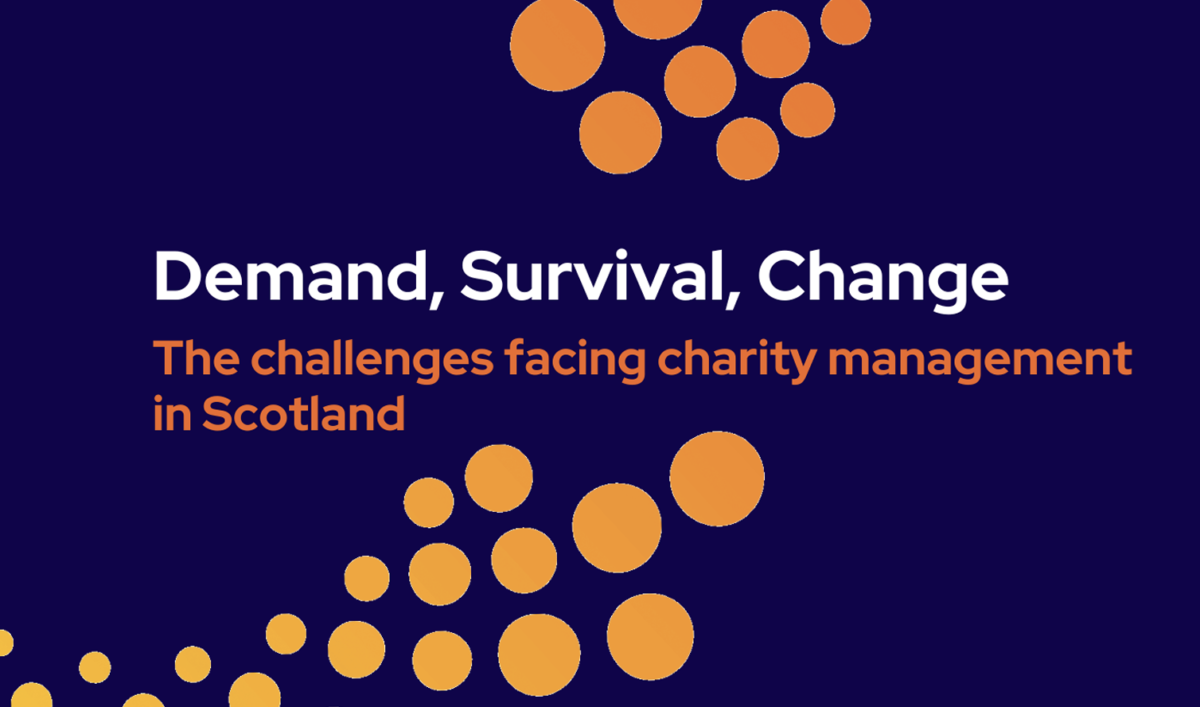Overhauling funding systems in Scotland & Northern Ireland could provide extra millions for charities, Commission finds

An overhaul of the funding systems in Scotland and Northern Ireland could provide millions more for charities every year, according to two new Law Family Commission on Civil Society reports, published today.
The Commission has spent the last two years exploring the potential of civil society in the UK. With its final reports focused on Scotland and Northern Ireland, it calls for bold action to help fuel national recovery and growth in both countries.
It outlines a raft of proposals around boosting collaboration between businesses, policymakers and civil society, concluding that economic growth and social progress in Scotland and Northern Ireland is dependent on the three sectors “firing on all cylinders and working effectively together”.
Advertisement
Scotland
Among its findings on Scotland, the Commission concludes that there is room to significantly boost philanthropy in Scotland and across the UK, with its research suggesting that if the Scottish public gave a similar share of their wealth to charity as the public in New Zealand or Canada, it would provide another £300 million a year for charities in Scotland.
Northern Ireland
In Northern Ireland, the Commission found that there was also room to significantly boost philanthropy and that if the Northern Irish public gave a similar share of their wealth to charity as the public in New Zealand or Canada, it would provide another £31 million a year for charities.
The reports note: “It is clear that civil society is integral to achieving both economic and social progress, and it already makes enormous contributions to both. But it is also evident that it could achieve even more.”
Lord Gus O’Donnell, Chair of the Law Family Commission on Civil Society, said:
“Charities are a key part of the solution to every challenge faced. Whether it is making communities safer, greener, healthier, more prosperous or more equal, charities must be at the decision-making table and operating at their optimum level if we are truly to achieve the change we need.
“As both the cost of living crisis and the pandemic have shown, charities and community groups make the difference between people eating or missing meals, being heard or left voiceless, and feeling alone or well-supported.”
On Scotland, he added:
“The charity sector has grown to employ around 135,000 people in Scotland, but it faces real challenges in meeting the demands that are now placed upon it. There are fewer people giving regularly to charity, including the growing pool of highest earners who are earning more but giving less. Formal volunteering has stagnated. And the way that the funding system for charities works has left holes in charitable provision in some of the places that need it most, as well as disincentivising investment in skills, digital and the infrastructure that allows charities to have the greatest possible impact with the limited resources that they possess.
“The Law Family Commission on Civil Society is now calling on funders and the Scottish and UK governments to invest strategically in the productivity of the charity sector, the data available to and about it, and in the changes needed to unlock greater giving. Alongside this investment, there must be a dramatic acceleration in the partnership between civil society and business and a reset of the relationship between civil society and government. With this investment, acceleration and partnership, civil society’s full potential can be unleashed.”
Recommendations
The reports both set out a number of recommendations across 5 key themes.
- Building productivity and organisational effectiveness
The Commission recommends a “radical shift” in approach from funders away from short-term and restrictive funding and towards support for core costs and investment in people, processes and organisational development. It recommends creating a new Civil Society Evidence Organisation in both countries to improve the availability and spread of evidence across the sector.
- Creating timely, accessible data and robust evidence about the sector
The Commission says UK and Scottish governments should play “a coordination and leadership role” on social sector data, including the delivery of the civil society satellite account pledged in the Levelling Up White Paper. It urges funders to “encourage and support charities to collect, use and share high quality data”, and for more to share their own data and participate in initiatives such as 360Giving.
In Northern Ireland, it calls on the Northern Ireland government, when it is restored, the Northern Ireland Statistics and Research Agency (NISRA), the Charity Commission for Northern Ireland, trusts and foundations, and charities to come together to develop a data strategy for the social sector. It also calls for the UK government to expand existing data labs, ensure social sector organisations in Northern Ireland can access them, invest in more of them, and deliver the promised civil society satellite account.
- Improving the scale, distribution and impact of funding for the sector
The Commission recommends that Scottish government and the Northern Ireland government, when restored, appoint a full-time public official as their “Philanthropy Champion”, along with local philanthropy champions tasked with drawing funding into deprived areas. It also calls on the Financial Conduct Authority (FCA) to require financial advisors to receive training on philanthropy and impact investing, as part of its ESG and Consumer Duty responsibilities.
- Bringing businesses and civil society together
The Commission makes four recommendations aimed at fostering greater collaboration between business and the charity sector. It is calling for the Scottish government’s Economic Development Directorate, and a restored Northern Ireland government, to work with the UK government’s Department for Business and Trade (DBT) to reinstate the requirement for businesses to report their contributions to charities and civil society.
- Strengthening relationships with policymakers
The Commission calls on the Scottish government and a restored Northern Ireland government to review the membership of formal advisory structures and ensure both appropriate civil society representation. In Scotland it urges initiatives such as City and Regional Growth Deals to routinely build in social sector involvement as they do the private sector. In both countries it also urges policymakers and charities to work together to drive up volunteering by policymakers and create more opportunities for policymakers and social sector workers to undertake secondments in other sectors.
The reports can be read on the Pro Bono Economics site here: Unleashing the power of civil society in Scotland, and Unleashing the power of civil society in Northern Ireland.





